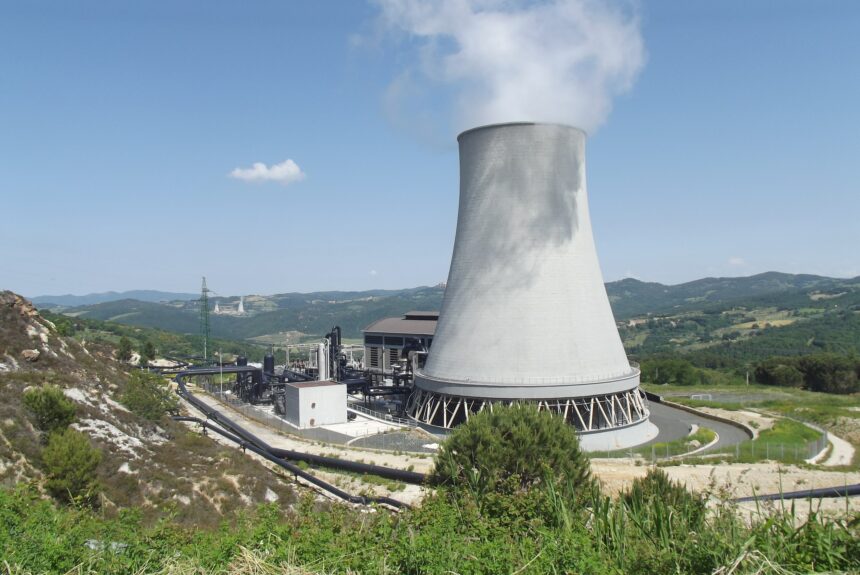Data centers use a tremendous amount of power to stay online. There are more than 5,000 data centers in America, which account for 2 percent of annual energy use nationwide. And that percentage is set to increase—a recent market report from Newmark suggests data center energy consumption will double by 2030 as the market for artificial intelligence and cloud computing grows.
The same report from Newmark found that many data centers are struggling to meet demand for storage due to a lack of reliable energy. Northern Virginia, the largest data center market in the world, has 3,400 megawatts of capacity but runs at full power just .2 percent of the time. Recognizing the need for reliable power to meet demand and clean energy to meet carbon reduction goals, companies are turning to nuclear power.
>>>READ: Rising Energy Demand is Not the Enemy. It’s the Opportunity
One corporation is Amazon which recently acquired a 100 percent nuclear-powered data center for Amazon Web Services (AWS). Located on a 1,200-acre site, the data center will be powered by Talen Energy’s Susquehanna Steam Electric Station nearby. Commissioned in 1983, the plant is one of the largest in the country, generating 2,475 megawatts of clean energy annually, enough to power two million homes. With the data center campus purchase, AWS has signed a nuclear power purchase agreement with Talen for the next decade.
AWS has roughly 1.5 million users, generated more than $90 billion in 2023, and has shown consistent growth year over year, making it one of the most successful parts of Amazon’s business. AWS is set to continue growing and will only require more energy to operate in the coming years, which makes the purchase of this facility a logical move by the tech giant.
A top company like Amazon choosing to purchase a nuclear-powered data center is a significant step forward for the tech industry and toward broader acceptance of the energy source in the U.S. But Amazon is not the only major player to catch on to the need for a consistent, clean source of power for data campuses.
Last year Microsoft brokered a deal with nuclear power provider Constellation Energy to provide carbon-free power to a Microsoft data center in Virginia. Earlier this year, it was announced that Microsoft had hired new staff dedicated to rolling out advanced small modular reactors.
In addition to using nuclear energy to power its data center operations, Microsoft is using its cutting-edge technology to help the nuclear industry grow. Last year the company began training its AI software to navigate regulatory and licensing documents for nuclear power plants, which could reduce costs, streamline projects, and alleviate a huge headache for the industry.
>>>READ: U.S. Inability To Address Nuclear Waste Harms Environmental Progress
Microsoft is wise to look to advanced small modular reactors (SMRs) as a future power source for data centers as we are likely to see these sorts of non-traditional reactors come online across the country in the coming years. Oklo, an innovative nuclear company that boasts OpenAI CEO Sam Altman as a board member, wants to have a plant come online by the end of the decade. Other companies working to bring SMRs online are eyeing similar timelines.
As technological innovation makes nuclear easier than ever to deploy, we can expect to see the tech giants of our day putting clean energy to work and keeping us all online and connected. Companies like Amazon and Microsoft are trendsetters—where they lead, the rest of the tech industry will likely follow.
Kelvey Vander Hart is a native Iowan, a member of the American Conservation Coalition, and a communications specialist at Reason Foundation.
The views and opinions expressed are those of the author’s and do not necessarily reflect the official policy or position of C3.
